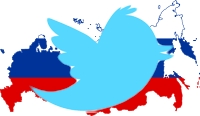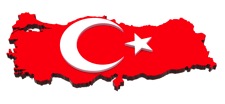Last week the Twitter account of the Associated Press was hacked, and a message posted saying that bombs had gone off in the white house, and the president was injured.
Obviously this was false. The Syrian Electronic army a pro regime hacker group has claimed responsibility, which does not prove that they did it.
There is talk about Twitter moving to two factor authentication to reduce similar hacking in the future. While this is all well and good, it will not eliminate the problem.
The bigger issue is that these poorly secured social media sites are used by people around the world as reliable sources of news.
Apparently much of the crash came from automated trading systems parsing the tweet, and generating immediate trades without any human intervention at all.
The DOW dropped 140 points in 5 minutes.
The creators of these trading algorithms feel that news from twitter is reliable enough to be the basis of equity trades without any confirmation, or time for reflection.
Certainly very large amounts of money were made and lost in that short period.
Why make the effort to hack into what we hope is a well defended nuclear power plant or other critical infrastructure, when you can get similar amounts of financial damage from subverting a nearly undefended twitter account.
Because individual twitter accounts are not considered critical infrastructure, they are hardly protected at all, and are not designed to be easy to protect.
Nevertheless we give it, and other social media, substantial power to influence us and our decisions, financial and otherwise.
Take for example the crowd sourced search for the Boston bombers on reddit. Despite the best of intentions, many false accusations were made that had major impact on the accused, and one can imagine scenarios which could have turned out much worse. What if the accused at committed suicide, been injured in a confrontation with authorities, or been the vicim of vigilante action? Now, what if there had been malicious players in that crowd intentionally subverting the process. Planting false information, introducing chaos and causing more damage.
This is an interesting problem. There are no technical or legislative solutions. It is a social problem with only social solutions. Those are often the hardest to address.



 Turkish Prime Minister Tayyip Erdoğan announced that the courts have ordered Twitter be blocked completely.
Turkish Prime Minister Tayyip Erdoğan announced that the courts have ordered Twitter be blocked completely. In episode 17 of The Privacy Blog Podcast for February, 2014 I talk about:
In episode 17 of The Privacy Blog Podcast for February, 2014 I talk about: